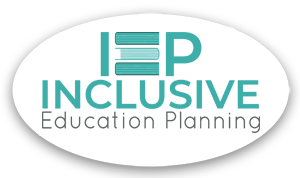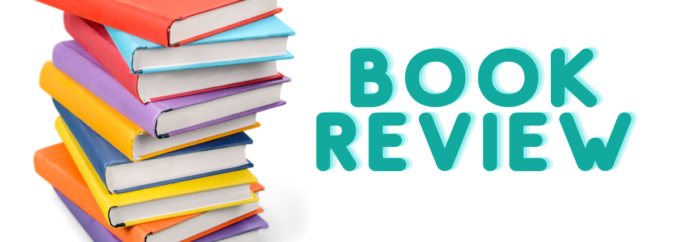The largest minority group in the world is the disability community, and every teacher will have a disabled student in their class at some stage. Despite this, there are significant barriers to disabled students being valued and accepted within general education. Historically there has been a lack of diverse representation within children’s and young adult literature. Yet, teachers have long understood the benefits of literature with diverse perspectives because exposure to other ways of being is a way of promoting social justice. We also need a world where all students can see themselves represented within literature. Adrienne Rich was a lesbian and feminist who lived with severe arthritis noticed this omission:
When those who have the power to name and to socially construct reality choose not to see you or hear you…when someone with the authority of a teacher, say, describes the world and you are not in it, there is a moment of psychic disequilibrium, as if you looked in the mirror and saw nothing. It takes some strength of soul–and not just individual strength, but collective understanding–to resist this void, this non-being, into which you are thrust, and to stand up, demanding to be seen and heard.
Adrienne Rich, Blood, Bread and Poetry: Selected Prose, 1979-1985
Over time the range of literature that includes diverse characters has rapidly increased, largely due to movements such as We Need Diverse Books in the United States. Now the focus has moved from literature about diverse characters, to the authors behind the books. The #OwnVoices movement started with Dutch author Corinne Duyvis in 2015. She created the hashtag for literature that features a marginalised perspective that has been written by someone who shares the same marginalised characteristic.
There is a long history of authors whose abled identity provides them with power, privilege and social status, who write outside their own experience. A few do it well, but many do not. Within the disability community there is concern when authors who do not have lived experience of disability (this is defined as direct, personal experience), appropriate and misrepresent disabled people’s experiences, and consequently reinforce ableist culture and practices. We should not necessarily avoid or cancel literature written by non-disabled people, but we should privilege disabled people’s understanding of their own lives. Literature by non-disabled authors can be utilised to promote critical analysis of the portrayal of disabled people, which can both reflect and shape societal attitudes. Focussing on these portrayals, then, becomes a means of examining, and in some cases opposing, ableism and discrimination.
Comparative analysis of literature, that is a close reading of two texts for their similarities and differences, provides insight into issues that may not be captured if each text were read separately. The comparative perspectives within non-fiction by disabled authors (#OwnVoices literature), and the fiction of non-disabled writers, can be utilised to examine the discourse about difference, challenge deficit ideas about disability and promote social justice. The first step is to locate a popular text by a non-disabled author (these are plentiful) that includes a disabled character. The next step is to locate #OwnVoices literature by someone with the same disability as the character in the popular text. This blog compares Wonder by R.J. Palacio, an American non-disabled author, with Ugly, by Robert Hoge, an Australian who has facial difference. It should be noted there are numerous options for pairing, but these texts have been chosen to introduce the work of #OwnVoices literature as well as to redirect teachers to local writers rather than drawing on well-known authors from overseas.
Wonder is a best-selling American novel by R.J. Palacio about a child named Auggie who has facial difference. R.J. Palacio probed into unknown territory by relying solely on her imagination to write about Auggie. Palacio’s inspiration for Wonder came from a visit to an ice cream shop where she had a chance encounter with a little girl with facial difference. When her son began crying hysterically in response to seeing this girl, Palacio panicked and fled from the shop. The novel Wonder is the outcome of this chance encounter, and perhaps her way of assuaging her guilt for not handling the situation better. Many argue that ableist themes are present in Wonder, although others, including Carly Findlay who has facial difference, claim that it is an accurate depiction of what it is like to live with facial difference.
In comparison, Ugly (there are two versions, one for younger readers and one for older readers, this blog analyses the former) is an #OwnVoices text by Robert Hoge about his childhood in Australia from his birth up to the age of 14 years of age. Robert’s story is a genuine, but at times harrowing, account of his experience of the barriers he experienced due to his facial difference and physical disabilities. It is a great book to use in the classroom context to introduce issues relating to disability such as inclusion, discrimination and unconscious bias. Ugly has significant advantages over Wonder, primarily because Robert is writing about his lived experience, and it is set in Australia. Robert is able to provide a perspective about disability that Palacio cannot.
| Themes | Wonder (Fiction) | Ugly (Non-Fiction) |
| Core message | Wonder is a sentimental, feel-good story about overcoming adversity. The book elicits sympathy for Auggie as he struggles with acceptance at school and friendships. ‘Choose kind’ is the subtext of Wonder and is based on a quote from a teacher on Auggie’s first day at school: If you have a choice between being right and being kind, choose kind. This message has great merit and many schools have developed units of work on kindness, bullying, responsibility, overcoming challenges, and friendship. However, readers might be left with a superficial understanding of the cultural change required to ensure our society is truly welcoming of disabled people. The ‘choose kind’ movement may even inadvertently suggest that disabled people should be kind in when confronted with bullying. | Ugly is a raw, honest, authentic account of dealing with systemic barriers to being valued and respected for who you are. The reader feels a great deal of empathy for Robert and his attempts to deal with attitudes that exclude and denigrate people who are different. |
| Point of view | Wonder begins with Auggie’s point of view in Chapter 1, but his story is interspersed with the voice of five non-disabled children in subsequent chapters. We hear from Auggie again in Chapters 6 and 8. While some might argue this multi-voiced narrative provides balance, the problem is that disabled people are routinely silenced by non-disabled people. It would be preferable for Auggie to have the entire narrative space for himself rather than his non-disabled counterparts diluting his message. | Robert’s story is a first-hand account of his experience as a disabled person. It is powerful, authentic and moving. |
| Agency | Auggie has little agency throughout the novel. While there is a lot that happens in the novel, it is rarely Auggie’s decisions or actions that direct the plot. Instead, his family and friends are the ones with agency, while Auggie is relatively passive throughout the novel. The ending of Wonder | Robert slowly develops agency as he grows. Throughout his childhood Robert’s parents made decisions on his behalf to have corrective surgery. The ending is powerful as Robert’s parents handed decision-making over to him: ‘Being put under general anaesthetic for so long presents a risk of brain damage. Next up was the chance of infection, which is especially high when bone is being cut and moved around. Any operation on the face also means lots of bleeding. Combined, the risks meant the operation could kill me.’ (p 26) Robert’s agency was evident in his rejection of further facial surgery as he wanted to ‘own his face’. Through this action, he embraced his appearance and rejected the social construct of normality and attractiveness. The ending of Ugly is satisfying as Robert makes significant decisions about his future. |
| Diversity | Auggie is the only character with a disability, while the rest are white, middle-class and non-disabled. Auggie’s family are financially secure despite being a one income family (Auggie’s mum has dropped out of her PhD program to care for him). There is no mention of the cost of the surgery that Auggie requires, despite the novel being set in America where medical expenses are prohibitive for the average family. The parents seem to lack depth and complexity. | Robert is the only character with a disability, but he is the fifth child of a working-class family who are likeable, but are real people with depth, complexity and flaws. For example, Robert described his mother’s ‘pain and grief’ at giving birth to a ‘little monster’. The word ‘monster’ is confrontational, highly charged and provocative as it leads us to acknowledge that disability slurs are used against disabled people. In this scenario, as in others throughout the book, Robert utilises understatement to outline, rather than explicitly describe terrible events. It took Robert’s mother one week to see her son, who was in intensive care. Robert used his mother’s words from her diary to describe her reaction: I didn’t feel anything for this baby’, she wrote in her diary. ‘I had shut off completely. I had made up my mind I was not taking him home’. She packed her bags and left the hospital without me. (p.10) Thankfully his mother changed her mind and eventually brought Robert home for him to grow up in a loving family. |
| Fixing disability or fixing oppression? | One of the key messages of Wonder is kindness and compassion. However, the book presents disability as an individual issue that needs to be fixed rather than a societal problem created by an hostile environment that fails to accept different ways of being.For example, the quote below from Auggie’s sister clearly blames his disability on genetic factors, rather than on the way that people respond to difference: Does August see himself as he might have looked without that single gene that caused the catastrophe of his face? (pp 11-12) | Ugly presents disability as a societal issue rather than an individual problem. At times it has an almost comedic approach to the terrible abuse that Robert experienced. Other times, such as Robert’s description of the tumour on his face, the choice of words are honest and shocking: ..jutted out from the top of my forehead and ran all the way down to the tip of where my nose should have been. It was almost twice the size of my newborn fist. It had formed early during my development and made a mess of my face, pushing my eyes to either side of my head. Like a fish. (pp 4-5) The metaphor, ‘Like a fish’ can be interpreted as a challenge to accept Robert as he is. As the novel progresses, it becomes clear that the main disadvantage is not from Robert’s face and body, but instead from the unwelcome reception he receives in the world. |
| Disability stigma | Auggie’s disability is downplayed throughout the book as many of the people around him pretend they cannot see his disability. Perhaps Palacio was attempting to make her readers feel comfortable by making disability palatable. If so, this is a microaggression. Microaggressions are disconcerting as they happen casually and often without any harm intended as they are usually outside the perpetrator’s awareness of their own bias. The exact words or actions by themselves may not be offensive, but their underlying meaning reveals implicit prejudice toward students with disability. Unwillingness to acknowledge or admit to seeing a person’s disability invalidates their experience. The denial of difference is also a denial of the power and privilege of ableness and the personal benefits accrued from this. When difference is denied it removes the responsibility and necessity to take action against oppression. | Robert is disarmingly honest about his disability. This direct language is reflected in the title Ugly, and sentences such as I’m the ugliest person you’ve never met. Robert’s description of his disability is confronting, but it is also a way of taking back power. His story is one of agency and resistance rather than the typical heart-warming story that we have come to expect. |
| Inspiration porn (the portrayal of disabled people as inspirational solely on the basis of their disability). | Auggie is given an award at school because he is disabled. But hey, if they want to give me a medal for being me, that’s okay. I’ll take it. (p 306) As well, Auggie is used as a plot device to teach others around him about acceptance and compassion. | Robert rejected notions of being inspirational just because he had a disability: Outright sympathy could be just as frustrating. Sometimes passers-by would tilt their head and deliver an undeserved smile. ‘Look at the kid limping along the footpath,’ the smile would say. ‘Isn’t he wonderful/ inspirational/amazing.’ There are some things I just couldn’t avoid when it came to my disability. |
| Disability slurs | R.J. Palacio decided to include Auggie’s use of disability slurs in the novel, despite the incredible harm caused by these words to the disability community. For a novel whose theme is ‘choose kind’, it seems like a poor decision. “Stop lying to me Mom!” I shrieked. “Stop treating me like a baby! I’m not retarded! I know what’s going on!” Palacio (2012 p.257) Other terms such as ‘moron’, ‘imbecile’ and ‘cretinos’ are used by Auggie’s mother. | Robert describes the top ten unflattering nicknames he was abused with at school. One of these is the word ‘retard’. NUMBER 5: RETARD. Origin: From the Latin retardare, meaning ‘to retard’, and, ultimately, tardus, meaning ‘slow’. Retardation was used as a medical term for quite a long while and it was a short step to label a person a retard. Robert’s use of this disability slur is to show how he was categorised as a lesser human through this language. |




